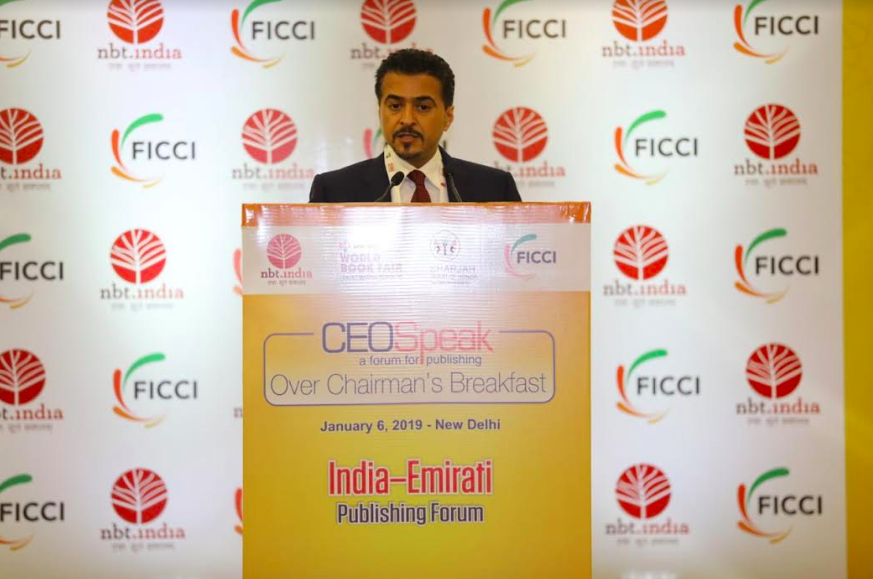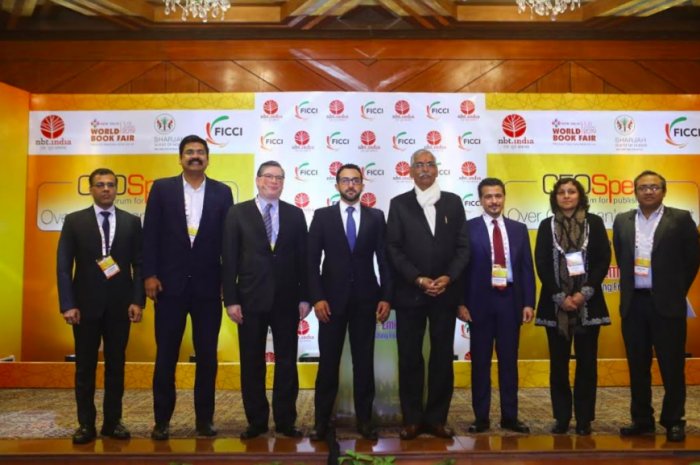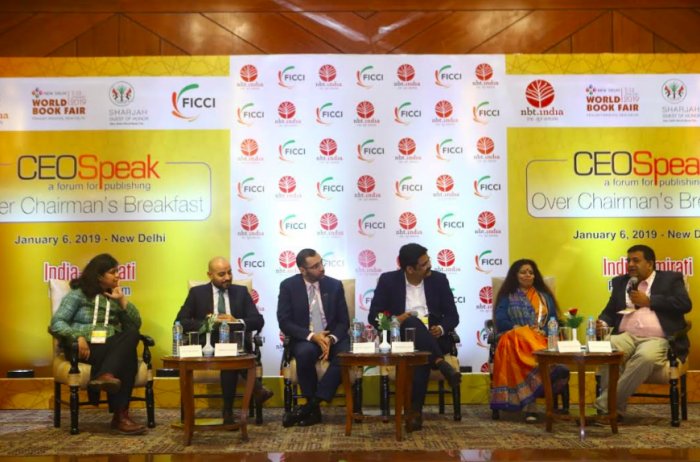
India–Emirati Forum Explores New Ways to Boost Cooperation in Publishing
As Sharjah’s and the UAE’s recent strides in boosting the region’s publishing landscape comes into focus at the ongoing New Delhi World Book Fair 2019, where the emirate has been offered the guest of honour seat, the seventh edition of the only CEOs forum in the publishing industry in India - CEO Speak, organised on the book fair’s side-lines has offered Emirati and Indian publishers a common platform to explore emerging business opportunities and discuss shared challenges.
Organised by National Book Trust (NBT) and the Federation of Indian Chambers of Commerce & Industry (FICCI) on Sunday morning (January 6), the India-Emirati publishing forum brought together CEOs from leading companies and publishing representatives.
Among senior attendees were HE Sheikh Fahim bin Sultan Al Qasimi, Executive Chairman of the Department of Government Relations; HE Ahmed bin Rakkad Al Ameri; Chairman of Sharjah Book Authority (SBA); Tamer Said, Managing Director of the Kalimat Group – the first publishing house in the UAE dedicated solely to publishing Arabic children's books targeting children; Ali Al Shaali, Vice President, Emirates Publishers Association (EPA); Baldev Bhai Sharma, Chairman, NBT; Dilip Shenoy, Secretary General, FICCI; and Vikrant Mathur, Director, Nielsen, India.
The programme began with a keynote address by HE Ahmed Al Ameri, during which he highlighted the importance of promoting reading and literacy, and the key regional role publishers in India and the UAE will play in facilitating this.
“Reading and literacy are the beating heart of Sharjah. Our ambition to support the global promotion of knowledge is reflected in our efforts to develop the international publishing industry, as envisioned by His Highness Sheikh Dr. Sultan bin Muhammad Al Qasimi, UAE Supreme Council Member and Ruler of Sharjah. The newest symbol of such efforts coming to fruition was the opening of Sharjah Publishing City in October 2017. The first publishing and printing free zone in the world to support businesses worldwide gain access into the Arabic book market has already become home to international companies from 17 countries, including India.”
He added: “It is clear that interest among Indian publishers in the UAE market, and vice-versa, will continue to grow in the coming years as both markets promise considerable growth potential. That is why forums such as this one are of the essence, where we can come together to explore new opportunities and discuss and share the book-trade opportunities and challenges.”
Through a detailed presentation, EPA’s Ali Al Shaali showcased the realities of the UAE’s publishing industry, highlighting important statistics representing the books trade between the UAE and India.
In the backdrop of over 15 different agreements signed between the UAE and India in 2017–18, which have facilitated the two nations to work more closely in economic as well as sociocultural fields, the UAE participants explained to their Indian counterparts about how organisations like the Sharjah Publishing City, the Sharjah Book Authority and allied entities will offer them the knowledge and expertise they require to branch out into the UAE’s and larger Arab markets.
A panel discussion was held with the participation of Sayoni Basu, Director, Duckbill; Al Shaali; Atiya Zaidi from Ratna Sagar; Tamer Said; and Ravi DeeDee, CEO, DC Books. Panellists shared personal publishing experiences and how the introduction of digital technologies has made it easier for disseminating knowledge and increasing people’s access to content, as well as reduced time and costs involved in running the publishing business.
Kalimat Director, Tamer Said, observed during the panel discussion: “Having local experience is key. Through a local partner, you will be able to have the knowledge and the know-how of the market you are targeting. In the last five years, the Kalimat Group has forged international partnerships with local publishers in Italy, France and other countries, who have been instrumental to our expansion and consolidation efforts. We have also spread Arabic literature and brought foreign literature into the UAE through numerous translations efforts with our international partners.”
For his part, Al Shaali said: “It is important to have a clear understanding of how we can build on the reservoir of the fortunes of knowledge possessed by the two countries, through stronger cooperation and sharing of expertise. ”

























